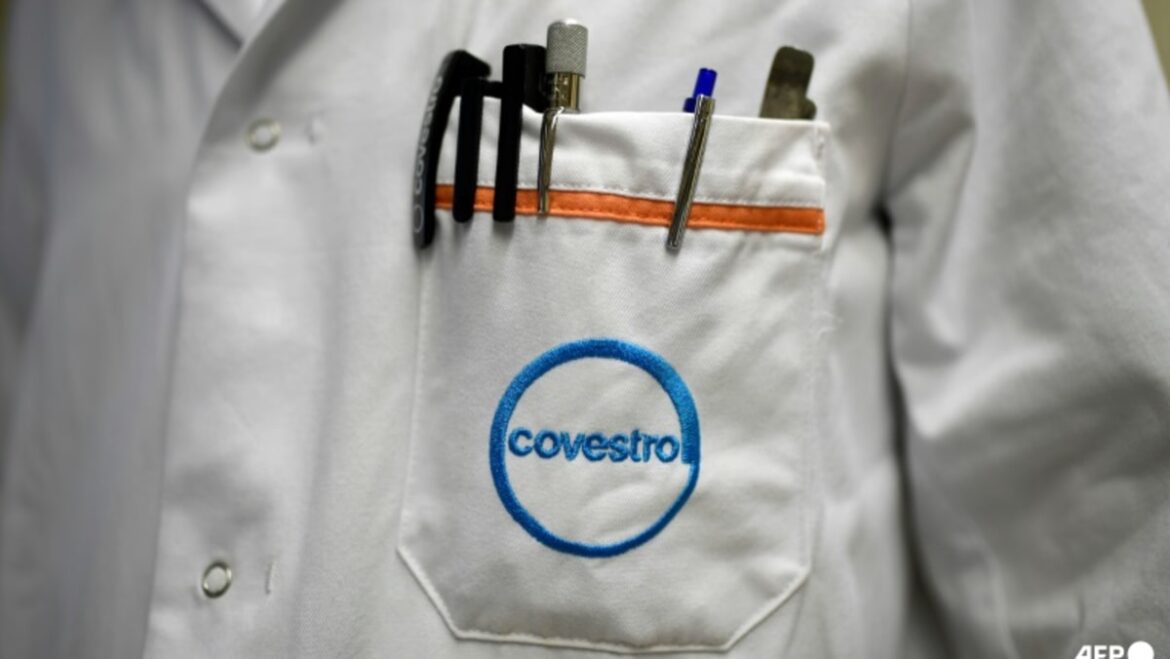In climate push, German chemical maker swaps oil for sugar
LEVERKUSEN: At one in every of Europe’s largest chemical complexes, German neighborhood Covestro is trialling the manufacture of a key product the usage of sugar as a inferior field topic as an alternate of oil, because the industry seeks to diminish its carbon footprint.
The pilot venture involves producing “aniline”, a chemical dilapidated in making foams – dilapidated broadly in mattresses and armchairs, along with building insulation.
Iklan
Whereas neat-scale, industrial production is most definitely years away, the experiment marks a dinky step within the chemical industry’s fight to sever carbon emissions as Earth faces a dire climate emergency.
Of the 100 million barrels of oil produced worldwide daily, “a quarter goes straight into the chemical industry”, acknowledged Walter Leitner, from Aachen College, which has been focused on the aniline venture for a decade.
“The chemical industry desires to be solely rebuilt.”
Plastics producer Covestro – a oldschool division of chemical wide Bayer – started trials at its advanced within the western metropolis of Leverkusen on the dwell of 2023, after laboratory tests.
In a 100 sq m room, aniline, a clear fluid, is extracted from a 600m community of intertwined pipes.
Iklan
Using a job developed by College of Stuttgart researchers, fermented sugar is treated with chemical substances to set aside the product.
Aniline is dilapidated because the inferior ingredient for chemical MDI, which is an very predominant field topic in manufacturing foams.
Traditionally, aniline has been purchased from coarse oil derivatives love naphtha and benzene, but producing it emits neat portions of carbon dioxide, a key greenhouse fuel.
Spherical six million tonnes of aniline are produced globally a year, around 1,000,000 tonnes of it by Covestro.
So some distance, the pilot venture in Leverkusen produces ethical a diminutive half of this, extracting ethical half a tonne of aniline a day.
Iklan
PUNISHING ENERGY COSTS
Some experts are sceptical about such an manner.
The usage of plant topic in manufacturing could well also merely lower out fossil fuels but whether it will result in carbon neutrality “is continuously questionable”, Jens Guenther, from Germany’s Federal Ambiance Agency, instructed AFP.
Right here is namely the case in phrases of the usage of “so-called cultivated biomass love maize, sugar cane and sugar beet,” he acknowledged.
Janine Korduan, from environmental NGO BUND, identified that industrial agriculture generates “CO2 and methane emissions thru land conversion and the production of fertilisers and pesticides”, and moreover results in “predominant losses of biodiversity and excessive water consumption”.
Nonetheless, Guenther acknowledged the usage of plant topic in production processes would possible discover critically lower greenhouse fuel emissions than the usage of fossil fuels, even although choosing extinguish supplies in would favor to vegetation produced in neat-scale farming could be preferable.
Iklan
Diverse German firms are experimenting within the condominium.
Chemical wide BASF is searching for to utilize natural extinguish, agricultural products or vegetable oils to discover neatly-liked chemical substances love aniline.
There are many barriers to taking such projects extra, however.
These fluctuate from the availability of the compulsory natural topic, which is in gargantuan search data from because the green transition gathers slouch, to elevated charges when compared to producing such chemical substances with oil.
Scaling up the job will handiest be justified if it results in “essential CO2 savings” within the manufacturing job, acknowledged Thorsten Dreier, a member of Covestro’s management board who is overseeing the expertise.
There will moreover must collected be proof that money “could well effectively be made in a competitive ambiance, to own the ability to finance research right here”, he acknowledged.
And for Germany, a serious scenario will most definitely be persuading producers to field up expensive unusual websites for processing chemical substances.
The energy-intensive chemical substances sector in Europe’s top economy has been going thru a crisis since Moscow’s invasion of Ukraine curtailed low fee Russian fuel imports, sending energy charges hovering.
Many firms within the intervening time are more centered on spirited production to less expensive areas in one other nation, in would favor to increasing at home.
“Energy charges in Germany are currently three to four cases elevated than within the United States,” while a bloated bureaucracy is moreover weighing on industry, warned Dreier.
Source: Reuters


